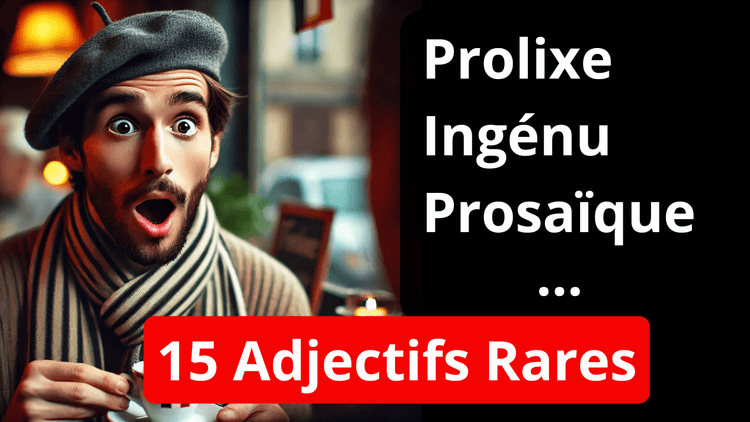Unraveling the Mystery: The “Jaloux comme un Pou” French Expression

-
March 28, 2024
3/28/2024
« - Tu as vu comment Julien a regardé ta nouvelle collègue, hier soir ? demande Léa avec un sourire malicieux.
- Oh, arrête, répond Max en roulant des yeux. Qu'est-ce que tu insinues ?
- Rien, rien, je pense juste que... tu es jaloux comme un pou, Max ! Éclate Léa en riant. »
This light exchange, typical of a sunny lunch on a café terrace, hides much more than it seems. Why do we compare jealousy to a louse? Stay with us to discover the surprising origin of this French phrase.
Presentation of the phrase
The French phrase "jaloux comme un pou" sparks curiosity with its originality. In English, this is literally translated as "jealous as a louse". But so, what does it really mean to be jaloux comme un pou?
To be jealous as a louse describes an intense, almost irrational jealousy, where one feels threatened by the slightest attention that a loved one might give to someone else. This feeling, often accompanied by a touch of envy, can sometimes seem as small and insignificant as a louse, yet be capable of causing a lot of inner turmoil.
On dit "jaloux comme un pou" pour parler de quelqu'un qui est très jaloux. En anglais, la traduction est "jealous as a louse". C'est une façon de dire que quelqu'un est tellement jaloux que ça peut sembler un peu fou.
Origin of the phrase
The origin of "jaloux comme un pou" is as fascinating as it is unexpected. It all starts with another phrase: "jaloux comme un pouil". At first glance, the idea that a louse could feel proud is amusing 😄
At the heart of this phrase lies one of the most surprising linguistic misunderstandings. The "pouil" in question was not the insect we know today, but referred to the rooster. Indeed, in Old French, the word "pouil" meant le coq, a symbol of pride and arrogance in the barnyard. This animal, known for its dominant and protective behavior towards its companions, was often seen as jealous and proud.
The transformation of "pouil" into "pou" and the mutation of the phrase reflect linguistic evolution and the amusing misunderstandings that can result.
L'expression "jaloux comme un pou" vient d'une vieille histoire. Avant, "pouil" voulait dire "coq", pas l'insecte qu'on connaît maintenant. Le coq est un animal qui se montre très fier et protecteur. Donc, quand on dit que quelqu'un est "jaloux comme un pou", on parle en fait d'un coq qui ne veut pas partager ce qu'il aime.
Use of the phrase
The phrase slips into our everyday language as subtly as it does expressively. Here are some examples that well illustrate its use:
At a family reunion, Emma notices that her cousin can't help but frown every time she talks to her other cousin. Amused, she whispers to her sister: « Regarde-le, il est jaloux comme un pou ! »
Someone says to a friend who cannot stop watching his partner at the party: « Tu es jaloux comme un pou, détends-toi un peu ! »
« À chaque fois que mon partenaire like les photos de quelqu'un d'autre sur les réseaux sociaux, je me sens jaloux comme un pou. Je sais que c'est stupide, mais je n'y peux rien. »
Similar phrases
The richness of the French language is reflected in its variety of phrases describing human feelings. If "jaloux comme un pou" amused you, here are other similar expressions that explore jealousy and pride:
"Vert de jalousie": Used to describe a jealousy so intense that it is almost physically visible, this phrase refers to the color that someone's face might turn when eaten up by this feeling.
"Fier comme un coq": Just like the rooster struts in the barnyard, this phrase is used for someone overflowing with pride and confidence.
"Avoir l’œil du tigre": Even though it evokes more determination, this phrase can also reflect the intensity of a sentiment of rivalry or jealousy, like a predator eyeing its prey.
Il y a d'autres expressions qui parlent de jalousie ou de fierté. Par exemple, "vert de jalousie" pour une grande jalousie, "fier comme un coq" pour beaucoup de fierté, et "avoir l’œil du tigre" quand on est très déterminé ou jaloux.
Conclusion
Exploring French phrases is somewhat like going on an adventure in a vast garden full of surprises. , with its curious story and unexpected origin, is a perfect example.
Using these phrases in your daily life will not only enrich your language but will also connect you to the cultural richness of the French-speaking world. So, do not hesitate to integrate them into your conversations, share them and discover new ones.
Thank you for your interest, and be fier comme un coq of your progress in French!

Subscribe to our newsletter
Latest posts
Browse all posts
Subscribe to our newsletter
Stay informed and get a free video

